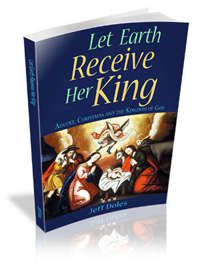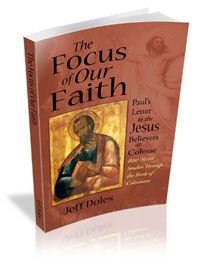The struggles in history are the struggles in history. Whether or not they needed to take place, the fact is that they did take place. And the fact that they did take place has affected the way various groups have come to see certain things today. Those struggles have resulted in certain paradigms.
Now, paradigms are not necessarily bad ... or necessarily good. They are simply ways of seeing. That is, they help us see certain things. On the other hand, paradigms can also
prevent us from seeing other things, things that are outside of how we have grown accustomed to seeing.
Our eyes take in a lot of visual data, and our brains try to process it, to make sense of it. But there may be a lot of things we don’t notice because they are outside of our paradigm. Optical illusions work because our brains try to process the images according to some particular paradigm, and the image is somehow not completely set up according to that paradigm.
Or to give another example, when I bought a Saturn Vue back in 2007, I had not seen one before. But the day after I bought it and rode around town in it, I saw Saturn Vues all over the place. Well, the truth is that I had actually
seen them before but I simply had never
noticed them before, because I did not have a category in my mind for them. But when I bought a Vue, my mind opened up a new “file” on them and suddenly I started noticing Saturn Vues.
In the Western Church, and especially in evangelicalism, we have been accustomed to a particular paradigm about the gospel, that it is mainly about justification, or more narrowly for some, about the payment for sin, or for others, about the assurance of heaven when we die. We have been accustomed to reading Scripture through that particular paradigm, and we have difficulty seeing things in Scripture that are outside that paradigm. We read them, our eyes actually scan them, but we do not notice them or know what to do with them because we do not have a category for them in our thinking.
It is like trying to breathe through a soda straw. Now, you can actually breathe through a soda straw, and if you do it long enough you can get used to breathing that way. And if that were the way you were taught to breathe from the beginning, you might probably think that everyone is
supposed to breathe that way. But when you remove the soda straw and inhale deeply, you begin to realize how much that straw limited your ability to breathe. You have enlarged your paradigm, the way you understand and experience breathing.
The same thing can happen with the way we understand and experience the Scriptures. One day you may be reading along in your Bible and you notice something you have never noticed before. And instead of setting it aside and moving on because you don’t know what to do with it, you stop and think about it, taking it in as best you can. Then you begin to notice it in a number of other places in the Bible. It was always there for you, and you may have read over it a hundred times before, but now, suddenly, you are noticing it.
Something like that happened to me when I began to study closely in the book of Matthew, back in the 80s, and I began to realize how much of the Gospels and the ministry of Jesus was concerned with the kingdom of God (this eventually led to my book on the Gospel of Matthew,
The Kingdom of Heaven on Earth). It happened again in more recent years when I started studying the gospel by looking at every place in the New Testament that uses the Greek words for gospel (
euaggelion) and evangelism (
euaggelizo). I soon began to realize that the gospel is very much bigger than I had formerly thought in the paradigm to which I had so long been accustomed. I was no longer trying to breathe it in through a soda straw but began inhaling it deeply.
Were those struggles of mine, wrestling with my old paradigms, necessary? I don’t know. Perhaps I could have ignored those other things I was suddenly noticing in Scripture and been fine — you can breathe through a soda straw, after all. On the other hand, I kept on noticing those things and was unwilling to let them go.
Of course, there has been a price to pay. The struggle itself is one. But then there is also trying to explain what I see to others who do not see it (yet) — that also has cost me. But what I have gained in return has been well worth it: I see wonderful things now — in Christ, in the gospel, in the Word — that I could not see before, and it has blessed me to no end. And I am breathing more deeply.








.jpg)













